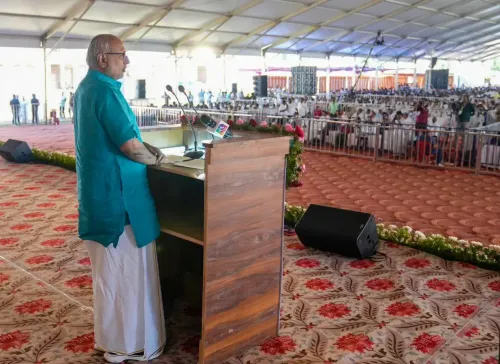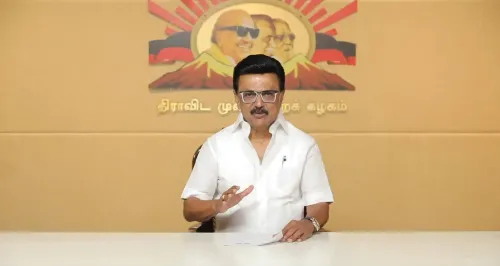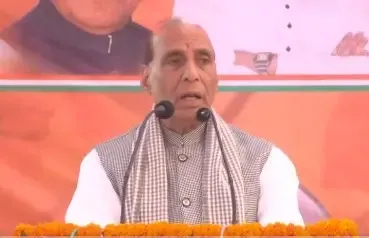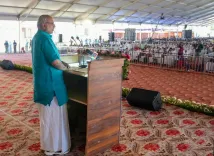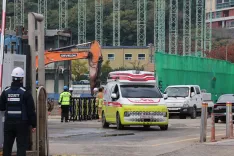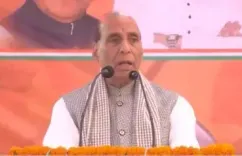How Did Rahul Gandhi Thank Scientists Behind India's First Nuclear Test?
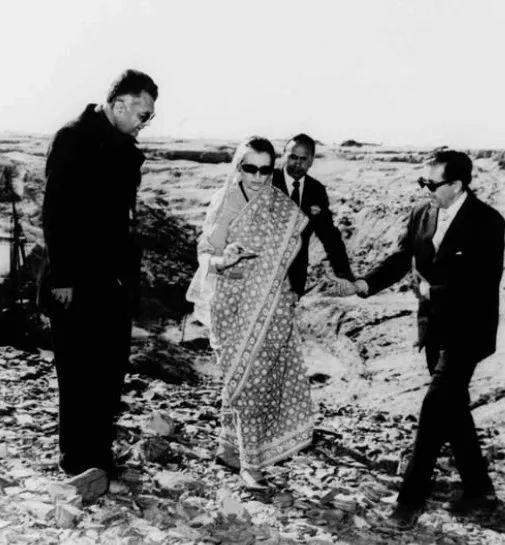
Synopsis
Key Takeaways
- Operation Smiling Buddha was India's first nuclear test conducted in 1974.
- It marked India's entry into the nuclear-capable nations.
- Conducted under the leadership of Indira Gandhi.
- Significantly impacted India's scientific and strategic landscape.
- Laid the foundation for future nuclear advancements.
New Delhi, May 18 (NationPress) Congress leader Rahul Gandhi conveyed his heartfelt appreciation to the exceptional scientists and researchers whose unwavering commitment led to the success of India’s inaugural nuclear test, Operation Smiling Buddha, which took place 51 years ago in Pokhran, Rajasthan.
In a message posted on his Facebook, he remarked: "Under the insightful and decisive guidance of Smt. Indira Gandhi, India conducted its first nuclear test, Operation Smiling Buddha, 51 years ago in Pokhran, Rajasthan. I extend my genuine gratitude to the remarkable scientists and researchers whose labor made this achievement possible."
Earlier, Congress President Mallikarjun Kharge also honored the 51st anniversary of India’s first nuclear test, dubbed ‘Smiling Buddha,’ executed on May 18, 1974.
This event marked a crucial chapter in India's scientific and strategic narrative, positioning India among the elite nations with nuclear capabilities, becoming the sixth globally to undertake such an endeavor.
On the social media platform X, Kharge celebrated India’s scientific community and praised the leadership of former Prime Minister Indira Gandhi.
In his post, he stated: "51 years back, India executed its first Nuclear Test, code-named 'Smiling Buddha' making us the 6th nation worldwide to perform such tests. Our scientists and researchers accomplished this remarkable feat through their creativity and dedication. We owe them our profound gratitude. Smt. Indira Gandhi exhibited extraordinary and dynamic leadership, showcasing exceptional courage in challenging times, a legacy that remains. Jai Hind."
Officially recognized as a ‘Peaceful Nuclear Explosion,’ this operation was a meticulously orchestrated scientific and strategic landmark that astonished the global community. Despite facing significant international criticism and the cessation of numerous nuclear collaborations, India remained steadfast in its resolve to advance an independent nuclear program.
The foundation for this monumental event was established over several decades. India had firmly opposed the Nuclear Non-Proliferation Treaty (NPT), effective from 1970, viewing it as discriminatory, claiming it deprived equal rights to nations outside the recognized nuclear powers while seeking to restrict India's rightful pursuit of its nuclear technology.
'Smiling Buddha' represented not only a scientific triumph but also a geopolitical declaration. It illustrated India’s ability to utilize nuclear energy for peaceful applications while affirming its strategic autonomy. The success of the 1974 test paved the way for further enhancements in India's nuclear capabilities, ultimately culminating in a series of tests in 1998 under 'Operation Shakti.'
The legacy of Pokhran-I stands as a testament to India's determination, scientific ingenuity, and commitment to self-reliance in defense and technology.

